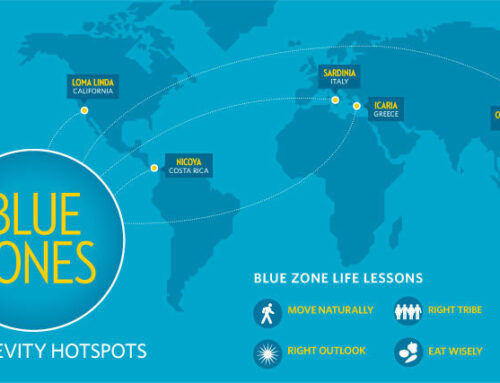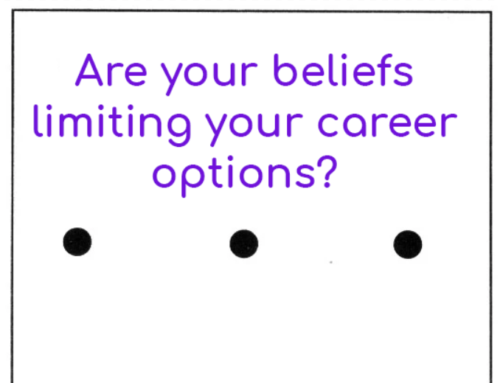Are you starting a new role, or aiming for a promotion, but really dread the salary negotiation?
As a Career Coach, I get asked this question all the time:
What’s the best (and least uncomfortable) way to negotiate a higher salary?
I was shocked after reading a study by www.salary.com, that showed only 37% of people always negotiate their salary. 44% said they negotiate occasionally, and 18% said they never negotiate.
That’s a huge shame, and literally money down the drain.
You’re expected to negotiate. The fact that you’re having this conversation means you’re highly sought after, and if you don’t negotiate, you’re selling yourself short. By negotiating you also show the interviewer that you can negotiate, which is usually a big asset for the company you work for. Furthermore, negotiation is a skill you can learn, and something you get better at the more you do it.
That’s why I have collected my best strategies in today’s article, which will hopefully help you to be less fearful, and instead, more confident about negotiating your salary.
1. Give a precise and high number (not a range)
From your initial research you’ll find out about the salary range for the kinds of positions you’re going for.
Don’t make the mistake of stating a range, or going for a number in the middle – instead, ask for a precise number at the top.
Why?
First of all, why wouldn’t you think you deserve the top end of the range?
Secondly, the interviewer is likely going to negotiate as well, hence you want to have some wiggle room so you can still get a salary you’re happy with.
Furthermore, giving the interviewer a range indicates you stating you’re happy with the lower end of the range, which is what they will jump for.
In terms of giving a precise number, research by Columbia Business School has shown that employees who use a more precise number, are more likely to get a final offer closer to what they were aiming for. Probably because a precise number indicates to the interviewer that you have done more extensive market research to obtain this number.
So be confident, and state a high, precise number. The worst thing that can happen is that the interviewer negotiates you down. The best case scenario is of course you’ll get more than you first aimed for!
2. Start an Achievement Journal
It’s really easy to forget about many of your contributions to your company. Assuming you haven’t done this already, set aside some quiet time and start writing down all your achievements, from the past months, going back even longer. Don’t sell yourself short, and try to be as specific as possible. If you can use specific numbers like “I increased sales by 32%”, it makes an even stronger case.
Aside from this being crucial in a salary negotiation, there are lots of other benefits to keeping a thorough record of your achievements – if you have a disagreement with your boss and need to score some brownie points, if you change jobs, or if you simply need to boost your confidence by reminding you of everything you have achieved so far, an achievement journal is key.
Trust me, you’ll get addicted to continuously updating your achievement journal once you get started.
3. Check the market rate
Find out what the going rate is for people in your position and with your experience. Also, the location you work in is important, as there can be big salary differences between cities.
To do this, check out Glassdoor’s Salary Tool. You can often get good information from recruiters as well.

4. Mindset is everything
It’s normal to get nervous and start doubting yourself before a big negotiation. Get to know what rituals work for you. Whether it’s going for a morning jog or doing your daily meditation, make sure you’re in your best possible shape on the big day.
Before you enter the room, go to the toilet and do a ‘power pose’. In other words, look at yourself in the mirror, stand tall, with your chest and chin raised proud. This has been proven to raise testosterone, which increases your confidence and lowers your stress hormones.
Power poses are more powerful than you would think, check out the Ted Talk by Amy Cuddy which makes a really strong case.
Remind yourself that practise makes perfect – negotiation is a skill, and the more you do it, the better you get. Practise in the mirror at home, and you can even try recording yourself to get an honest view of how you come across.
5. Negotiate your value before anything else
By the time you get to the negotiation stage, the interviewer will already know about your achievements. There’s however a big difference between listing off your achievements, and communicating the actual value you will add in the role.
Before the negotiation, you should practise expressing how your strengths and contributions will make a difference to the company.
In order to do this well, it’s important you do your homework and get clear on what the top goals are for the company, in the short, medium and long term. Once you know this, you can match your added value with what matters most to the company.
6. Keep the whole picture in mind
Remember that getting the salary you want is only part of the big picture. If you’re like most people, you also value things like your quality of life, holidays, bonuses, health care, a short commute, working from home, etc.
All of these benefits can also be negotiated, not just your salary! You can be creative here, and consider asking for something that’s unusual, but important to you.
What makes up a great package is different for each person. So do yourself a favour and spend some time thinking about what impact all these individual factors have on your well-being and happiness. Rank these benefits in order of their importance to you, and keep them at the back of your mind in the negotiation.
7. Put your mind into that of the interviewer
As I’ve found whenever you’re trying to understand or influence anyone in life: REALLY try to put your mind into that of the person you’re negotiating with.
Listen wholeheartedly to what they’re saying, as well as what’s being said (or not said) between the lines. Are they genuinely not able to raise your salary as much as you would want? In which case, what other benefits can they offer you instead?
You’re more likely to come to an agreement that works for both of you if you listen intently and really try to see things from their perspective.
8. Don’t jump at the first offer
Silence is gold. So is stalling.
When the interviewer states their offer, don’t say anything at first. Give it a few seconds, then say ‘Hmmm”…
Not only does it give you some time to think before you speak, but the silence indicates that you’re not super keen to just jump at their offer, and that you probably had a higher number in mind.
In the best case scenario you might get them to improve their offer right there and then. If nothing else, your hesitation sets the stage for a stronger negotiation from your side, with the conversations that are to follow.
9. Know your lowest number
Before the negotiation, be honest with yourself about what the lowest number is you’re willing to accept. Talk to a friend or your partner about this, and commit to not accepting any offer below this.
This isn’t easy, but being able to say NO is also a very useful skill in other areas of life. Be confident about what you’re worth, and know that you’re going to get a better offer somewhere else, if you stay firm on this.
Conclusion
I hope you have found a few of my strategies useful ahead of your pending salary negotiation.
I can confidently say that negotiation is something you get better and better at the more you do it. It’s a fantastic feeling to be proud for having made a strong case for yourself and stood your ground, and I want you to experience this feeling.
Not to mention what you can do with the extra money you’ll be making!
Best of luck, and let me know how you get on.







Leave A Comment